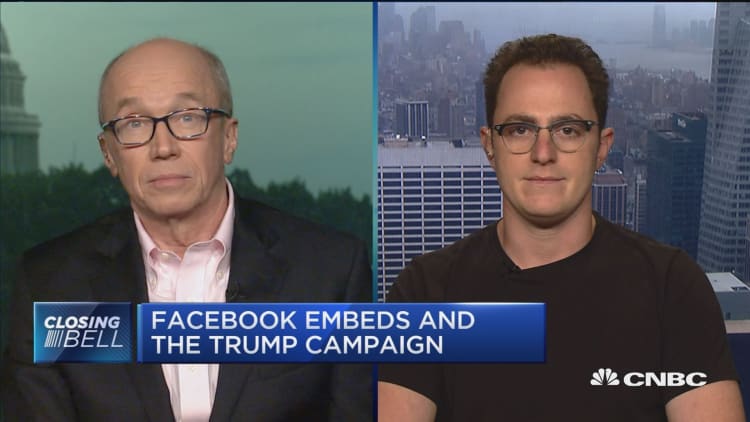
Facebook Chief Operating Officer Sheryl Sandberg said Thursday she supports the public release of Russian-linked political ads that ran on Facebook and have been shared with Congress.
"Things happened on our platform in this election that shouldn't have happened, especially — and very troubling — foreign interference in a democratic election," Sandberg told Axios. "And we know that we have a responsibility to do everything we can to prevent this kind of abuse on our platform."
Sandberg, who supported Hillary Clinton in the election and is a former Treasury Department staffer, is expected to meet with members of Congress on Thursday, according to Recode. She has already met with House Minority Leader Nancy Pelosi, according to previous reports.
The meetings come as Congress is investigating the role of Russian actors in the 2016 U.S. election, including thousands of advertisements that ran on Facebook. Sandberg said she supports publicly releasing the advertisements, as well as the pages they were linked to.
Leaders of a House Intelligence Committee panel said they plan to release the ads, likely after a Nov. 1 hearing, according to NBC News.
Sandberg said the targeting of those ads will also be released.
"We don't want this kind of foreign interference," Sandberg said. "These ads are divisive, and they are down, and the pages are down, because they are from fake accounts ... a lot of them, if they were run by legitimate people, we would let them run."
But Sandberg also called for other platforms, as well as the government, to rise to a similar standard of transparency. She noted that ads that promote violence and hate were part of the problem that Facebook had already been working to address.
Sandberg said that in the early days of monitoring on Facebook, preventing the hacking of private accounts was a primary goal.
"And then we started to hear the rumors — and this was around the election itself — of a different kind of attack," Sandberg said. "It was a more subtle [attack], even though just as important, which is posting in an inauthentic way to try to be deceptive and divisive."
She said that at this point, Facebook believes it has done a "thorough" job of identifying the Russian actor in question, thanks in part to the use of rubles to purchase the ads and the presence of fake accounts.
"We are following up aggressively on every lead we have," Sandberg said. "What we really owe the American people is determination. We are determined."
'We are very different than a media company'
Facebook has been criticized for the promotion of fake news by creating "echo chambers," and for allowing malicious targeting of specific groups. Sandberg said that users who get news on Facebook typically see a broader set of sources than through traditional media.
"We are very different than a media company. We are a technology company at our heart. We hire engineers ... but that doesn't mean we don't have responsibility," she said.
(Facebook did hire prominent journalists, including Campbell Brown, and hosts ).
Facebook has found marking "fake news" as hoaxes through a third party decreases the number of times a story is shared, Sandberg said. She also noted that Facebook is cracking down on the monetization of false reports, which she said is often as much of a driver of "fake news" as politics.
"We don't check the information people put on Facebook before they run it, and I don't think anyone should want us to do that," Sandberg said.
WATCH: Should Facebook be treated as a media company?



